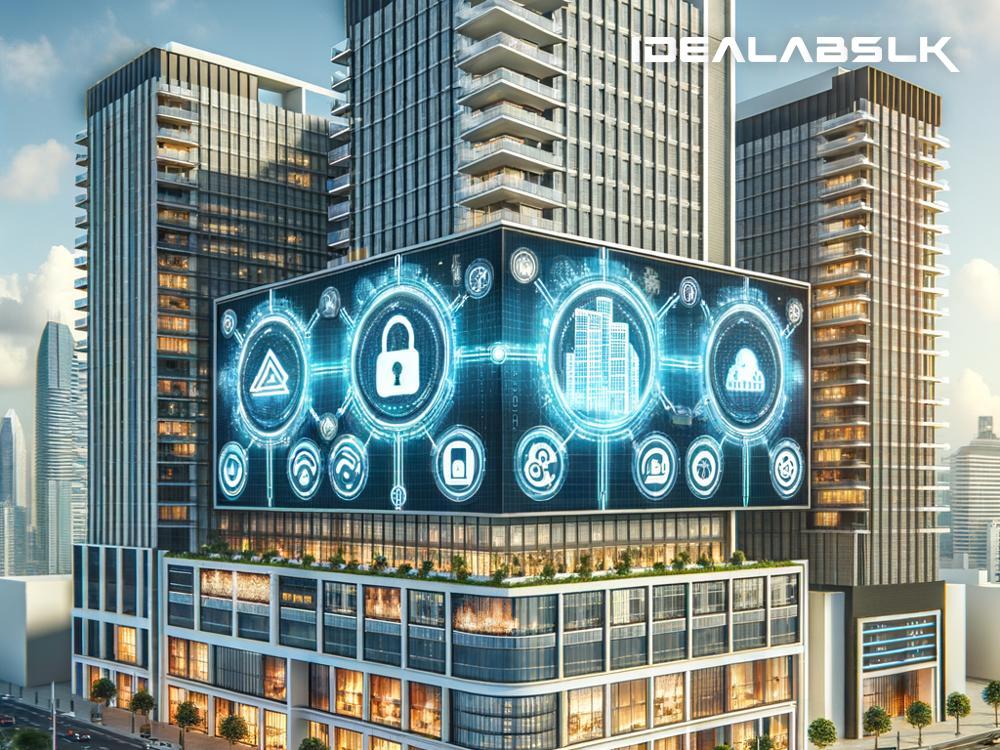Unlocking Efficiency: How Blockchain is Revolutionizing Smart Property Management
In today's rapidly evolving digital world, the way we manage properties is undergoing a significant transformation. Blockchain, a technology you might know from the world of cryptocurrency, is stepping into the realm of property management, promising to make it smarter, more secure, and incredibly efficient. But what does this mean for homeowners, landlords, and tenants? Let's break it down into simpler terms.
Imagine for a moment that you're playing a multiplayer online game. In this game, all actions are transparent, and once something is done, it can't be undone or altered without everyone knowing. This level of transparency and security is exactly what blockchain brings to property management.
What is Blockchain?
At its core, blockchain is a highly secure technology that records transactions (like buying a cup of coffee) in a way that makes it nearly impossible to hack or cheat the system. Think of it as a digital ledger that's not just in one place but copied across thousands of computers around the world, making any attempt at fraud easily noticeable.
Blockchain Meets Property Management
So, how does blockchain technology apply to property management? Here are a few ways:
-
Secure Transactions: Buying or renting property involves a lot of paperwork and legal formalities, making it a breeding ground for fraud. Blockchain can secure transactions in an immutable record, ensuring that everyone's rights are protected without the need for an army of lawyers.
-
Direct Payments: With blockchain, we can streamline rental payments directly from tenants to property owners, bypassing traditional banking systems. This not only speeds up transactions but also reduces the risk of errors and fraud.
-
Effortless Identity Verification: The process of verifying the identities of tenants or owners can be tedious and time-consuming. Blockchain can store verified personal data, making identity checks as simple as scanning a QR code.
-
Transparent Maintenance Records: Maintaining a property is vital for its longevity. Blockchain can store maintenance and repair records transparently, ensuring that all parties are up-to-date with the property's condition and maintenance history.
-
Decentralized Management: Instead of relying on a single property management company, blockchain can decentralize management tasks across various stakeholders, promoting efficiency and reducing potential conflicts of interest.
Real-World Benefits
Now, let's translate these technical advantages into real-world benefits:
-
Cost Savings: By reducing the need for intermediaries (like banks and lawyers) and streamlining transactions, the cost of managing properties can be significantly reduced.
-
Time Efficiency: Processes that once took days or weeks, such as verifying identities or processing payments, can now be completed in a matter of minutes.
-
Increased Trust: The transparency and security of blockchain foster trust among all parties involved, making property transactions smoother and more reliable.
-
Improved Accessibility: Blockchain's decentralized nature means that property management services can be accessed by a broader range of people, including those in remote areas.
Potential Challenges
Despite its promise, integrating blockchain into property management isn't without challenges. Technical complexities, regulatory hurdles, and the need for widespread adoption are just a few of the obstacles that need to be navigated.
Looking Ahead
As we look to the future, it's clear that blockchain has the potential to revolutionize property management. From making transactions more secure and transparent to simplifying the renting process, the benefits are manifold. However, for this potential to be fully realized, it's crucial for industry leaders, government bodies, and tech experts to work together to overcome challenges and foster an environment where blockchain can thrive.
In conclusion, blockchain technology offers a smarter, more secure, and efficient way of managing properties. By embracing this innovative technology, we can look forward to a future where property transactions are not only quicker and cheaper but also far more trustworthy. The journey of integrating blockchain into property management is just beginning, and it promises to unlock new levels of efficiency and accessibility for everyone involved.

